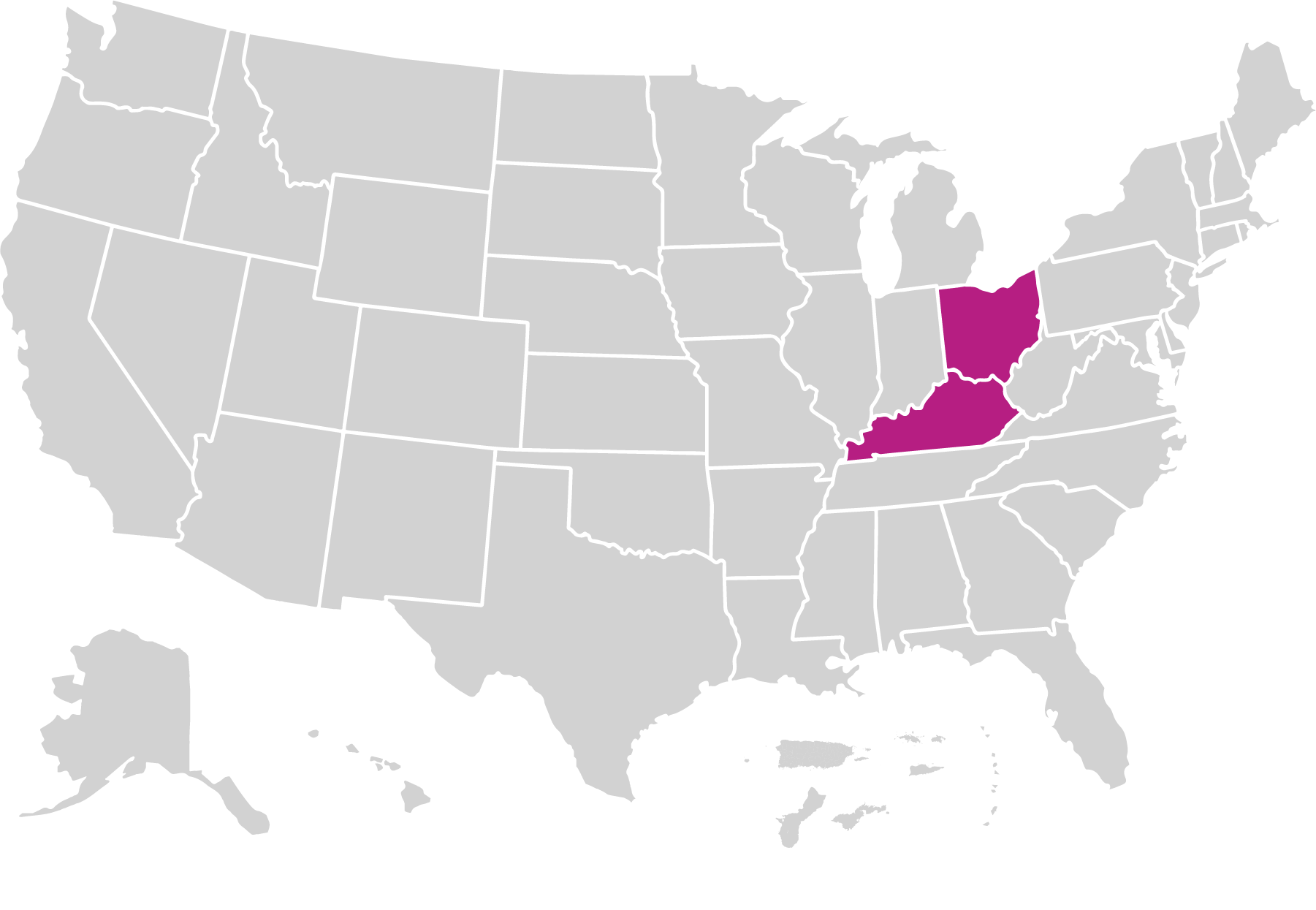Health Access Nurturing Development Services
HANDS is a statewide home visiting program in Kentucky that provides assistance to overburdened parents during the prenatal period until their child is 3 years old. The model’s main goals are to promote healthy pregnancies and births, optimal child growth and development, safe homes, and family self-sufficiency. See www.kyhands.com for details.
What is the model’s approach to providing home visiting services?
Home visits take place weekly, beginning prenatally, until the child is 6 months old. After the child is 6 months old, visit frequency is determined by the family’s level of need. Services are offered until the child is 3 years old. HANDS requires families to initiate services prenatally or before the child is 3 months old.
HANDS’ target population includes the following:
- Families with low incomes, unstable housing, or who are unemployed
- Unmarried mothers or single parents
- Parents/caregivers with limited education
- Families with a history of substance or tobacco use
- Families facing challenges such as marital problems or inadequate social networks
- Mothers with late or no prenatal care or history of abortion
- Families with mental health issues
Who is implementing the model?
Home Visitors
Paraprofessional home visitors must have a high school diploma. Professional home visitors must have a bachelor’s or associate’s degree in a related field or be a registered nurse or social worker. Home visitor caseloads are weighted based on families’ needs; home visitors are expected to maintain an average weighted caseload of 38 to 40 families.
Supervisors
The model requires supervisors to be an advanced registered nurse practitioner, registered nurse, or licensed social worker.
Where is the model implemented?
HANDS operated in 66 local agencies in two states in 2018.

Families Served Through Evidence-Based Home Visiting in 2018
Race
<1% American Indian/Alaska Native
<1% Asian
10% Black
* Native Hawaiian/Pacific Islander
87% White
2% Other
Caregiver age
28% ≤ 21 years
48% 22-29 years
23% 30-44 years
1% ≥ 45 years
Caregiver education
26% No HS diploma
38% HS diploma or GED
31% Some college or training
6% Bachelor's degree or higher
Ethnicity
7% Hispanic or Latino
93% Not Hispanic or Latino
Child age
41% < 1 year
55% 1-2 years
3% 3-5 years
Child insurance status
77% Public
6% Private
17% None
